- Home
- Patrick Ness
The Crash of Hennington Page 2
The Crash of Hennington Read online
Page 2
—Is it as bad as it feels?
She felt her lips crack as she finished the sentence. She tasted blood.
—I think you’re going to live, but we’ve got to get you inside somewhere.
And so Albert referred to himself and Cora as ‘we’ in the third sentence he ever spoke to her. Whenever she told this story in the years to come, both less and more often than you might think, Cora left out how suddenly comforted Albert’s simple ‘we’ had made her feel. If, as she believed, every story needed a secret, Cora’s was that she had loved Albert from sentence number three.
—Let me help you up. Slowly, now.
With much care and the lightest of touches, Albert got her to her feet. He gathered her few wayward things and delicately placed a hand on an unburnt spot to help her walk.
—You’re going to have this two-tone problem for a while. Your backside is as white as virgin pearl.
—A moan will have to suffice for a witty rejoinder.
—I’ll pretend to be dazzled.
She still could only barely see him, but her painful squints revealed first his nudity, second that he seemed Cora’s age or a bit younger (she was right but only just; when they met, they were twenty-two and twenty-one), and third that the reddish-blond hair on his head matched exactly the reddish-blond hair that led down from his belly button. What made a bigger impression was the kindness she felt in his hands. They were so gentle on her skin that they seemed to be the only thing keeping her from spontaneous immolation as they trudged back up the beach.
—How did you get here?
—I drove my hasty.
—Well, you’re not driving it home.
—Clearly.
—Do you have anyone who could come get you?
—My flatmates, I guess.
—I recognize that tone. Don’t worry. I’ll drive you, and let’s talk no more of it.
—Ow.
—We’re getting there.
Step by painstaking step, Albert supported Cora, and they walked, naked as a bridal bad dream the night before the wedding, past staring groups of volleyball players and disc throwers. Cora’s burn was so awesome there weren’t even any catcalls. The onlookers knew they were in the presence of something tremendous.
—Pavement.
Cora’s step jarred on the stone, sending a canvas of pain up her front.
—Ow.
—My car’s just right here.
—So close? You got here early.
—I’m not very proud to say.
Something occurred to Cora.
—Did you come to the beach naked?
—No. I was having sex with a man in the bushes behind you. We dozed, and when I woke up, he was gone and so were my clothes, towel and all various and sundry, save for the sandals I had somehow managed to not take off.
Cora let out a surprised laugh in the form of a grunt.
—I’m laughing less at the story than at your candor.
Through another squint, she could see him grin.
—I’m Albert.
—Cora.
—How about I take you to my lonely apartment, cover you with aloe, and put you in a cold bath, Cora?
—I’m in no position to decline.
Albert slipped off his left sandal, lifted up a flap, and pulled out his car key. Cora watched him with burnt eyebrows raised.
—You know, that’s a really good idea.
Some time later, after Albert more than made good on his promises, he wrapped her in a sheet, laid her on the couch, and fed her with bits of melon and cool water.
—I want to take you out to dinner to repay your kindness.
—Are you asking me on a date?
—You had sex with a man on the beach today. Are you askable on a date?
—It’s a big world. I like lots of things. I’m askable.
—All right then, I’m asking.
They married four months later. Though they occasionally indulged in sharing a boy, theirs was a rock-solid, faithful, and devoted union. Such was their bond, in fact, that by the time Cora was elected Mayor a surprisingly short seventeen years later, local Hennington argot referred to an especially strong contract as an ‘Albert and Cora’ to demonstrate its solidity.
3. The Crash on the Hill.
She was concerned about the dust.
The air smelled heavily of it, but it should have been too early in the year for there to be dust, although the last rains were well gone. There was ash in the dust as well and a distant smell of burning. She paused before she led the herd up to the top of the hill that marked the northern entrance to the descending fields, a place completely lacking in the malodorous homes of the thin creatures. This was just a grassy area, and she shouldn’t have been able to smell dust at all.
(An Arboretum groundskeeper leaned against his rake, watching The Crash from behind a stand of trees. He could see them grazing in the field, Maggerty mooning along after as usual, and he also had a pretty good guess where they were going to head next.
He frowned.)
She looked at the rest of the herd behind her. A lightness of mood permeated the group but left her unaffected. She was the only one who bothered at the dust in the air. The rest of the herdmembers shuffled aimlessly about, pulling at the grass with agile lips, some of the younger calves even playing, gamboling on the lea, if anything so bulky could ever truly be said to gambol. Lush green surrounded them. Families of birds sang to each other in the trees and to those symbiotic brethren who made a meal of the ticks and other annoyances in the herdmembers’ hides. A breeze teased its way through the glade where the herd was gathered, and to every herdmember there, save one, all was well.
She sniffed again, reaching with her nose, even squinting her eyes, their weakness more than compensated for by sensitive nostrils and nimble ears that now also turned and grabbed at any evidence that might linger in the air. Nothing. There was the usual amount of thin creatures scattered in the fields, easy to sense with their eerie strangled cries and halved footfalls, oddities not excepted by the thin creature who constantly followed the herd, also present in her catalogue of senses. Nothing out of the ordinary but the dust.
She snorted and waved her great horn to get the others’ attention. The message communicated itself through the group, and the herd began to file behind her. Yet even as they crossed into the ever more verdant gardens that leapt their way down the hillside, she could still smell the dust, its persistence meaning only one thing.
Hard times were coming.
4. Luther in Limbo.
Luther Pickett, beloved foster son of Archie Banyon and heir apparent to both the Chairmanship of Banyon Enterprises and the Banyon family fortune – though there was the matter of the last name – kept an immaculate desk in the middle of an overwhelming office. Taking up fully three quarters of the forty-fifth floor (the leftover fourth given to elevators and Luther’s four secretaries), it contained a conference room, a lengthy reception hall, a full bathroom with shower, an exercise room with spa and relaxation tub, a dining room, and a whole separate apartment where Luther could quite comfortably spend the night if he chose, which he never had, not once. Luther’s desk sat in the office’s main chamber, a room whose vaulted ceiling reached so high it took up a sizable portion of the forty-sixth floor, giving Luther a two-story wall made entirely of glass. In late afternoon, the sun poured in, filling the office to the brim with a spectacular view of Hennington out into the Harbor and beyond. Aside from Archie Banyon’s own office (the three-story penthouse with the pool, driving range, and ice rink; Archie was an athletic man), Luther’s office was the most impressive, most talked about, most envied, and to the extent that smaller budgets would allow, most copied in the city.
So it should surprise no one that Luther Pickett was desperately unhappy. Really, just look at his desk. A notepad, a file, a few papers, neatly stacked. A blotter, a telephone with intercom, a computer to one side. Barely anything else. No personal photos, no mementos
from company milestones, no sample Banyon Enterprises products. Even the coffee mug was black and unmarked by logo or design. Most definitely not the outward reflection of an unfettered soul.
The minimalism (some would say sterility) reached to the gray carpet and on up the undecorated walls. After three years in this office, the intended inoffensive-yet-very-expensive abstract expressionist paintings were still packed in crates thirty stories below, waiting futilely for the day when Luther would finally allow them to breathe fresh air. And there was the silence, too. No bustle, no music, not even a hum from the air conditioning, just Luther’s pen scratching across a paper or the fading click of typing on the keyboard. Yet the atmosphere was not cold but melancholic, a funeral parlor’s viewing room rather than a prison cell, Luther the grieving relative and not the angry inmate. Luther at thirty-eight (grapevine verdict: ‘looks younger, seems older') appeared at once tense and exhausted. His tanned, handsome face rarely smiled, his broad chest rarely expanded into laughter, his step never betrayed any lightness. His secretaries worried frantically about him.
The intercom lit up.
—Yes, Lois?
—You’re going to be late for your 9.30.
Luther glanced at the clock.
—Shit. Call Jules, please, and tell him I’m on my way.
—I already have.
Archie Banyon and Luther Pickett had a thrice-weekly tennis match, played on the grass court Archie had installed on the uppermost floor of his own office. It was meant as a friendly game between friendly rivals, father-son in intent, if not perhaps in genuine feeling; still, it was not the corporate death-saga it might have been. Luther was strapping, tall, muscular. He was bald across the top and kept the rest of his hair cropped extremely short, a trompe l’oeil that made his head seem like a single sleek muscle as well. His tightly compacted litheness paired with a set of small silver-rimmed spectacles to make Luther look for all the world like a terrifically strong man trying not to appear so. In spite of this – and spite definitely entered into the equation – Archie Banyon had an impressive game and a more impressive tenacity. Luther usually lost two out of three, even given Archie’s extra five decades.
What the matches amounted to were three opportunities a week to speak with Archie. Three times a week to deliver the prepared speech that Luther had written and rewritten, the prepared speech that laid it all in the open at last and forever, the prepared speech that would probably kill Archie Banyon, not merely because of what it meant for Luther, but because of what it meant for Archie’s biological son, Thomas, a distasteful little caveat that helped matters not at all.
Luther gathered his tennis clothes and bolted to the elevators. He shot up through eighteen floors of computer banks and safes, film libraries and records, corporate histories and hidden crimes, eighteen floors of valuable information that Archie had placed between himself and Luther because he only felt comfortable if he was on one end and Luther on the other. —To protect it, Archie said, like sentinels. The elevator doors snapped open. Luther spotted Jules, Archie’s assistant, arranging Archie’s equipment off to the side of the court. Jules flashed Luther a wan, impish smile.
—Piss off, Jules.
—Is that any way to greet your umpire?
—Where’s Archie?
—Here!
Archie called from the far end of the court, behind Luther. Luther turned. One week. One week, and there would be no turning back. He would either give the speech or he wouldn’t. In one week, if he hadn’t said no, his silence would have answered yes.
5. Maggerty.
Maggerty the Rhinoherd was not the rhinoherd, but the misnomer served a humane purpose. Though the resolute, quiet and massive Crash needed no tending, the presence of Maggerty could only otherwise be explained by madness, an explanation with which the polite citizens of Hennington privately agreed but publicly tended away. The Crash offered no product, neither meat nor milk nor leather; their eating patterns were too erratic and wandering to be a real benefit to agriculture (there were no farms in the city anyway, which was where The Crash wandered more than half the time); and the individual animals were impossible to tame, ignoring Henningtonians with a determination that would have seemed like arrogance had The Crash not also asked so little in return: a few hay bales during drier times and the right to free range. The Rhinoherd did nothing but follow. He was more disciple than caretaker. Hennington sensibilities to the side, it was an occupation for a fanatic or an imbecile. Fortunately, Maggerty was both.
He was born in the farmland to the south of Hennington, the only son of middle class rent-farmers. Odd from the beginning, his destiny was set at six years old when he was kicked between two ribs under his left armpit by a goat he tried to suckle. This – the attempted suckling – was not done out of hunger but out of simple entrancement with the goat and its wheaty, dirty, shitty goat-smell. Crawling past the small, electric dairy works; past the Rumour farm-maidens tending to the hens and the sheep; under the nose of the giant Rumour overseer asleep in his chair, head cocked towards a computer terminal, one hand somnolently gripping the erection that raged in his pants as he (the overseer) dreamed; moving quietly through the gate, held fast so the latch didn’t clatter; literally following his nose to the furthest pen, Maggerty came face to face with the bored she-goat, munching her hay, distracted and oblivious.
Trailing his fingers on the wall, Maggerty circled the goat slowly. She took no notice of him after her initial sizing-up, exuding the offhand confidence so peculiar to farm animals who weren’t also sheep. She was a greenish brown with white bony legs and sharp – Maggerty was soon to discover – hooves. With caution, or rather, with reverence Maggerty placed a hand on the goat’s hide. The goat jumped a little, but it seemed to Maggerty to be more out of surprise than abhorrence. When he touched her again, she didn’t move.
He began to stroke her, slowly, like a pet. She had birthed a litter less than three weeks before, but her kids had already been taken from her. Her udder, plump to the point of hardness, glistened with a liquid Maggerty assumed to be sweat. He knew, as all farm children knew, that udders issued milk, and he was deliriously overcome with a desire to drink, to sup rich sustenance from the goat, to bring the pulsing, thrumming warmth of another existing aliveness into himself. A contempt was there, too, for the goat’s refusal to regard him, to notice his need, but that did not stop his desire for the milk.
He knelt. Heat buzzed in the air. He felt his heartbeat in his temples. A tingling spread over his body along with a sort of ecstasy, if he had known the word at six, but it was like the ecstasy of those screaming streetcorner preachers who haunted Hennington’s desolate east side and who would shit right out in the open and leave it stinking in the sun for want of interrupting their sermons. Maggerty leaned in and put his lips to one of the long teats. He had not even properly gotten his mouth around the nipple when the goat kicked him, slicing a deep, precise cut between two ribs just below his left armpit, leaving a wound that never healed. Never.
This was the unacceptable thing. A child ridiculously exploring a goat could be explained, heaven knew such things and worse had happened on southern Hennington farms since time immemorial, but a child with a wound that never stopped bleeding, never scabbed nor scarred, now this was a thing to be wary of. The expected ostracism and isolation followed ruthlessly in the farming community, ringing outwards from friends to schoolmates to teachers and onward, until finally Maggerty’s own mother regarded him only grudgingly on the rare occasions when she regarded him at all.
As he stumbled down the road after The Crash, Maggerty distractedly put his hand to the wound. Years and years and years had passed. The wound never got worse, but it never got better either. It also never stopped hurting, and it was this, the never-ending pain coupled with the oddity of the never-healing wound, that had driven Maggerty irretrievably into madness sometime in the teenagedom when he had picked up with The Crash, still accompanying them all these many long years later.<
br />
He ate grass and roots with them. He drank from the streams and canals and lakes as they did. He rarely approached them – the experience with the goat had taught him not to meddle with an animal that weighed one hundred times as much – but he also never left them, nesting with them through winters and storms, famines and droughts. He began to be called Maggerty the Rhinoherd not long after taking up his patronage. At first, municipal thought considered forcibly separating him from The Crash, but as he apparently did no harm to the animals and as they did not seem to mind or indeed acknowledge his presence, he was left alone.
And so it stood. Maggerty the Rhinoherd. Before the year was out, he would have a second never-healing wound, but only because it would first take his life.
6. The Mayor’s Office and its Discontents.
The speakerphone on Cora’s desk crackled.
—Mayor?
—What can I do for you, Adam?
—The Arboretum just called.
—Let me guess. The Crash bruised a blade of grass and molested a squirrel.
—More like trampled a rare species of terrestrial phalaenopsis. The botanists are screaming about irreplaceability.
—Adam?
—Yes, Mayor.
—'Terrestrial phalaenopsis'?
—That’s what they said.
—They couldn’t say ‘orchid', like normal folk?
—I guess they figured you’d know.
—On the basis of nothing.
—What should I tell them?
—That they shouldn’t have planted terrestrial phalaenopsi where one hundred rhinoceros could tread on them.
—Well, they are terrestrial phalaenopsis.
—And it is an equally terrestrial Crash. Surely there are paths The Crash doesn’t take. The botanists can plant their orchids there.
—I think all they want is a fence.
—In whose lifetime do they see that happening? The Arboretum’s been an open park for ninety years. That’s not going to change on my watch just because a bunch of botanists are crying over orchids.

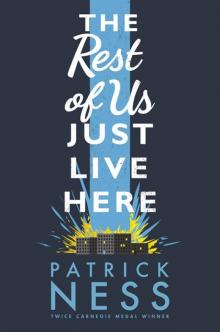 The Rest of Us Just Live Here
The Rest of Us Just Live Here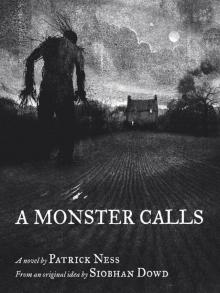 A Monster Calls
A Monster Calls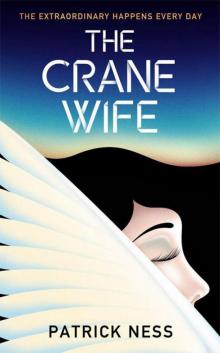 The Crane Wife
The Crane Wife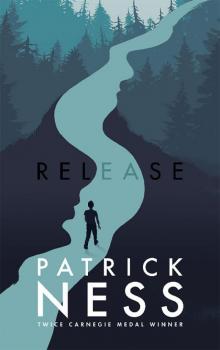 Release
Release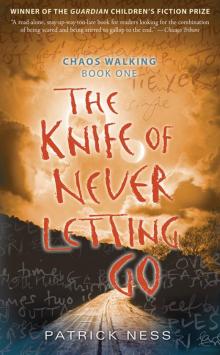 The Knife of Never Letting Go
The Knife of Never Letting Go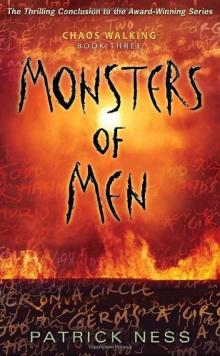 Monsters of Men
Monsters of Men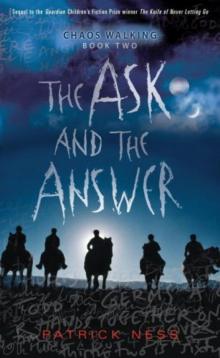 The Ask and the Answer
The Ask and the Answer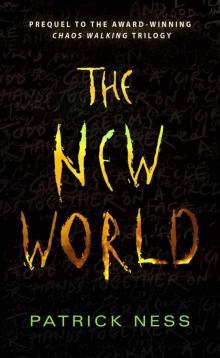 The New World
The New World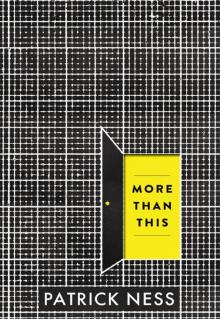 More Than This
More Than This Burn
Burn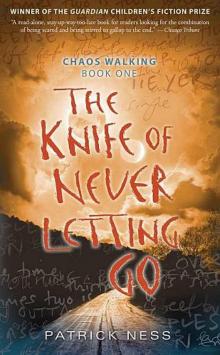 The Knife of Never Letting Go cw-1
The Knife of Never Letting Go cw-1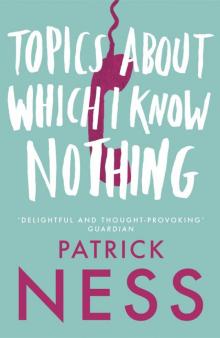 Topics About Which I Know Nothing
Topics About Which I Know Nothing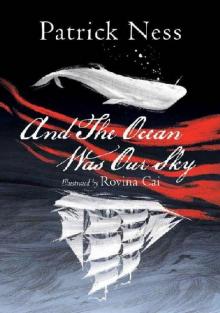 And The Ocean Was Our Sky
And The Ocean Was Our Sky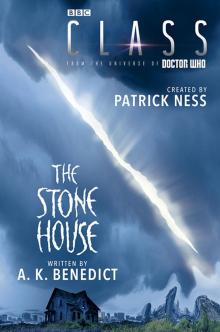 The Stone House
The Stone House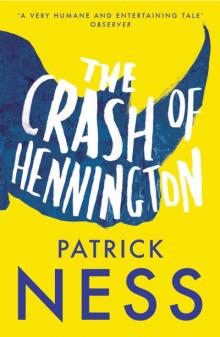 The Crash of Hennington
The Crash of Hennington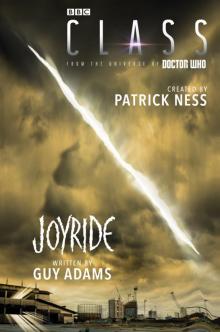 Joyride
Joyride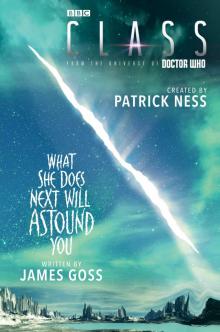 What She Does Next Will Astound You
What She Does Next Will Astound You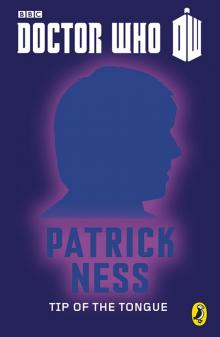 Tip Of The Tongue
Tip Of The Tongue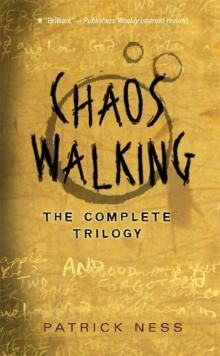 Chaos Walking
Chaos Walking